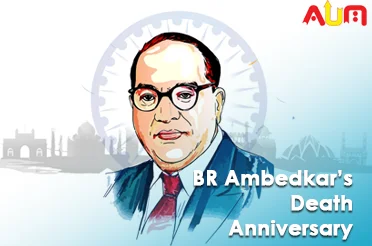Introduction to Labor
Laws Labor Day in India is a time to reflect on the contributions of workers and the importance of understanding the laws that govern their rights and responsibilities. Labor laws in India form an integral part of the legal framework governing the relationship between employers and employees. These laws are a set of regulations that aim to protect the interests of workers and promote decent work conditions. These laws cover a wide range of aspects, including wage protection, working hours, occupational health and safety, social security, and industrial relations.
History of Labor Laws in India
The evolution of labor laws in India can be traced back to the early 20th century when the need for protecting the rights of workers became evident. The first significant piece of legislation was the Trade Unions Act of 1926, followed by the Factories Act of 1948 and the Mines Act of 1952.
Key Features of Labor Laws
Key features of Indian labor laws include provisions for minimum wages, working conditions, health and safety standards, social security benefits, and dispute resolution mechanisms. These laws aim to create a balance between the interests of employers and employees, fostering a harmonious work environment.
Major Legislation in Indian Labor Laws
The Factories Act, 1948
The Factories Act, 1948 regulates the working conditions in factories, covering aspects such as health, safety, welfare, and working hours of workers. It applies to all manufacturing establishments with ten or more workers and ensures compliance with prescribed standards to protect workers' rights.
The Minimum Wages Act, 1948
The Minimum Wages Act, 1948 aims to prevent exploitation of labor by fixing minimum rates of wages for different categories of workers. It provides for the payment of wages not less than the statutory minimum wage, ensuring a decent standard of living for workers and their families.
The Industrial Disputes Act, 1947
The Industrial Disputes Act, 1947 provides a mechanism for the resolution of disputes between employers and employees. It covers aspects such as strikes, lockouts, retrenchment, layoff, and closure of establishments, ensuring peaceful settlement of conflicts through conciliation, arbitration, or adjudication
Rights and Benefits for Employees
- Right to Minimum Wages
- Employees have the right to receive wages not less than the minimum rates prescribed under the Minimum Wages Act, 1948. This ensures that workers are paid fairly for their services, maintaining a balance between the economic interests of employers and the welfare of employees.
- Right to Maternity Benefits
- Female employees are entitled to maternity benefits under the Maternity Benefit Act, 1961, which includes paid leave before and after childbirth, nursing breaks, and medical allowances. This provision aims to support working mothers in balancing their professional and personal responsibilities.
Benefits under the Employees' Provident Fund and Miscellaneous Provisions Act, 1952
The Employees' Provident Fund and Miscellaneous Provisions Act, 1952, provide social security benefits to employees, including retirement, disability, and medical benefits. Employers are required to contribute to the Provident Fund, ensuring financial stability for workers postretirement.
Duties and Responsibilities of Employers
- Providing a Safe Working Environment
- Employers have a duty to provide their employees with a safe and healthy working environment, free from hazards and risks to their health and safety. This includes implementing safety measures, providing protective equipment, and conducting regular inspections to ensure compliance with safety standards.
- Ensuring Fair and Just Working Conditions
- Employers must ensure fair treatment of employees, including nondiscrimination, equal pay for equal work, and opportunities for career advancement. Creating a conducive work environment based on mutual respect and dignity fosters employee morale and productivity.
- Compliance with labor Laws
- Employers are legally obligated to comply with all relevant labor laws and regulations, including timely payment of wages, adherence to working hours, and provision of statutory benefits. Noncompliance can result in penalties, fines, or legal action, impacting the reputation and operations of the organization.
Dispute Resolution Mechanisms
- Conciliation
- Conciliation is a voluntary and informal process of resolving disputes between employers and employees with the assistance of a neutral third party. It aims to facilitate dialogue, reach a mutually acceptable solution, and prevent escalations to more formal dispute resolution mechanisms.
- Arbitration
- Arbitration is a formal process of dispute resolution where an independent arbitrator reviews the arguments of both parties and issues a binding decision. It offers a more structured approach to resolving conflicts, ensuring a fair and impartial resolution based on legal principles and evidence presented.
- Labor Courts and Tribunals
- Labor courts and tribunals are specialized judicial bodies established to adjudicate disputes related to labor laws. These courts have the jurisdiction to hear cases involving wrongful termination, unfair labour practices, wage disputes, and other violations of labor laws, providing a legal recourse for affected parties.
Labor laws in India play a vital role in safeguarding the rights and interests of both employees and employers, fostering a conducive work environment based on fairness, equality, and justice. Understanding the key legislation, rights, and responsibilities outlined in these laws is essential for promoting harmonious industrial relations and ensuring the well-being of the workforce.
By Nandini Shaw








